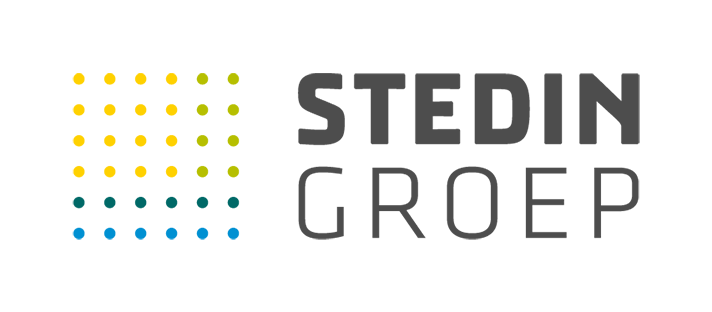Shareholders
Together with our customers, shareholders and partners, we strive to foster sustainability in our social environment. With the support of our shareholders (44 Dutch municipalities in 2020), we are delivering on the sustainable course that we have charted.
Stedin Holding N.V.’s authorised share capital is divided into 20 million ordinary shares. No preference shares have been issued. Each share entitles its holder to one vote. No depositary receipts for shares have been issued. Nor are there any usufructuaries or pledgees of shares with voting rights. The shareholders covenant and the terms of reference of the shareholders' committee are available on www.stedingroup.com.
Municipalities holding more than 2% of the shares
Municipalities holding less than 2% of the shares
Aalsmeer | Goeree-Overflakkee | Papendrecht |
Achtkarspelen | Gorinchem | Ridderkerk |
Alblasserdam | Haarlemmermeer | Rijswijk |
Albrandswaard | Hardinxveld-Giessendam | Schiedam |
Ameland | Heemstede | Schiermonnikoog |
Amstelveen | Hellevoetsluis | Sliedrecht |
Barendrecht | Hendrik Ido Ambacht | Uithoorn |
Bloemendaal | Krimpen aan den IJssel | Vijfheerenlanden |
Brielle | Krimpenerwaard | Westbetuwe |
Capelle aan den IJssel | Molenlanden | Westvoorne |
Castricum | Noardeast-Fryslân | Zandvoort |
Zwijndrecht |

Crucial craftsmanship: Frank Krug
Frank Krug is a specialist in outages. What does 'crucial craftsmanship' mean for him? ‘Don't just blame the fitter or the components. You need to be curious and investigate why an error was made.’
>What makes your work of vital importance? In other words, why is your work important for the organisation and society?
‘In the case of major failures and incidents, I investigate the cause. For instance, I investigated the 2 major incidents in the last 18 months in The Hague. What happened and what can we learn from this? Do we want to change certain processes? I work a lot with various organisations, such as the State Supervision of Mines. Through my work, we can prevent new failures. Both my colleagues at Stedin and society benefit from this!’
>How do you recognise a professional in your field?
‘You have to be investigative, curiosity needs to be part of your nature. Always think beyond what you see, with an open mind and a helicopter view. The real professionals in my discipline always exclude options, instead of thinking in terms of limitations. Rather than just blaming the fitter, they examine why an error was made. That is how you get results. I also derive inspiration from people from other organisations, like specialists of the fire brigade. I can learn from them as well.’
>What has working been like for you during the lockdown? What was different from normal and how did that affect you? What was the contact with customers like?
‘To be honest, I occasionally get a bit fed up with the whole situation. I miss the personal connections. In the office, you could just walk over, make eye contact. You hear and see a lot that you then need to respond to. All of that is missing now. I sometimes feel the contact with colleagues is something of a surrogate for that reason. Of course, there are advantages as well. For instance, I regularly have meetings at the KIWA research institute in Apeldoorn. You would spend almost a full day on a meeting of two hours. Now, without the travel time, a two-hour meeting really only takes two hours. I aim to stick to my old regular routine. I start work at the same time and take a walk during my lunch break, just as I did at the office.’
>How do you ensure that you remain fit and healthy yourself?
‘Last August, I turned 62, and I make use of the Vitality Scheme. It's pretty generous, you know. It's good to take things a little easier. I'm not exactly 20 years old any more. In this way, I am slowly moving towards my retirement. Every Saturday, I work as a volunteer on a small tugboat from 1958 that is moored here in Maassluis. We are completely refurbishing the boat, which is called “Tonijn” (Tuna). Some say, “If you buy a boat, you'll be working yourself into the ground to get it to float”. That might be true, but it's also a lot of fun.’
>What gives you the most satisfaction in your work? In other words, how does your work help you maintain vitality?
‘I get the most satisfaction from finding the cause of an incident or failure. The process of analysing. What happened, exactly? And if we can then introduce changes, for instance in behaviour, and you can really induce people to change the way they do things, that is what gives me real satisfaction.’
